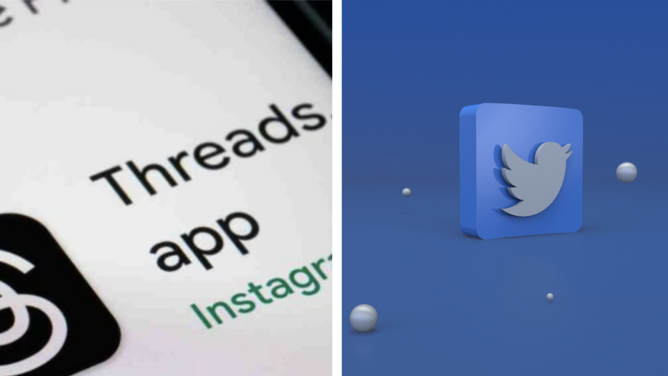Threads Isn't A Threat To Twitter, The 'Default': Bobby Burack
On Wednesday, Mark Zuckerberg launched Threads, a Meta alternative to Twitter. The app works in conjunction with Instagram, the third most-used social media service worldwide.
Over 30 million users downloaded Threads in the first 16 hours after its launch.
The press, a former ally now foe of Twitter, has helped campaign for Zuckerberg's latest venture. Read The New York Times' fawning review here.
Elon Musk threatening legal action for creating what he considers a "Twitter clone" has prompted a conversation about Threads having the momentum to unseat Twitter.
But as I discussed on SiriusXM Patriot with Stacy Washington, I don't buy it:
The idea of a Twitter Killer," as they call it, is hardly novel.
For years, conservatives schemed to provide an alternative to Twitter 1.0, over which internal documents confirm the DNC wielded unconstitutional influence.
Parler, Gab, Gettr, and Truth Social are among the platforms that sought to capitalize on the anti-Twitter market.
Particularly, Parler gained traction during the 2020 election. But Amazon Web Services crashed its servers following the events of January 6, ultimately derailing its fate.
The other alternatives were unable to abrade Twitter by any substantial metric. Even Truth Social, other than various posts from Trump, has yet to prove relevant in the conversation.
By contrast, Threads caters to the other side of the marketplace. Consider it a more censored, controlled clone of Twitter 2.0 (Elon Musk's version).
Now, Meta provides Threads a more steady foundation than the likes of Gettr or even Truth Social. Meta and Alphabet Inc. (Google and YouTube) are the most powerful social media corporations in the U.S.
And for those reasons, Threads has staying power. But Threads would have to seize on Twitter's market share to unseat it.
Launching a social media service in 2023 is akin to creating a streaming service. Though not too late, the available seats are limited.
Exciting it used to be when a network advertised an upcoming streamer. Today, the idea of subscribing to another is exhausting.
Users were willing to subscribe to Hulu and Disney+ in addition to Netflix.
Yet since Paramount+, Max, AppleTV+, Peacock, Prime Video, Epix, Discovery+, and Shudder joined the fray -- the Streaming Wars morphed into not a race for superiority but a battle to stay financially feasible.
The Social Media Wars have reached a similar saturation.
The average user already interacts with 6.6 social media platforms. Signing up and interacting with a platform upon launch week is not the same as engaging with the service long term, which Threads would need to compete with Twitter.
Threads must substitute, not complement Twitter.
Doing so is unlikely given Twitter's "default status."
Americans use "Google" as a verb. We "Google" our questions. We tell people to "Google how to do that."
Of course, such use is grammatically incorrect. However, the phrase is instinctive. Google is instinctive. Users don't ponder to "Bing" their questions or "Yahoo" their answers.
So, no matter how intrusive Google is -- and the privacy concerns are alarming -- superior alternatives like DuckDuckGo have no chance to compete.
Likewise, "Netflix and chill." No one says "AppleTV+ and chills."
Netflix and Google are reflexes. As is Twitter.

Now, Facebook, TikTok, YouTube, IG, and Snap are each larger than Twitter in terms of mass reach. Though in terms of a real-time source of information, the town hall for political discourse, Twitter is the default.
Terms like "retweet," "quote tweet," and "ratio" are almost common knowledge. In media, they are.
A scenario in which Threads competing with such influence is hard to envision. Journalists' first instinct will still be to ask their counterparts to "retweet" their next story.
Twitter handles appear on television chyrons. Websites consider Twitter as the syllabus for content. Influencers cite their Twitter following as proof they matter.
Twitter is the de-facto editor of the press, the trendsetter of American culture.
Finally, Twitter is the home of the culture war.
Even if Threads were to gain grounds amongst liberal users, their ideals, counters, claims of victimhood, and feigning of outrage would go only so far if the opposition is not there to respond.
Cancel culture cannot escalate sufficiently if liberals and conservatives are segregated between Twitter and Threads.
If Twitter crashes, it will be because Musk trots out another rate limit exercise -- not Zuckerberg's quest to monopolize social media.